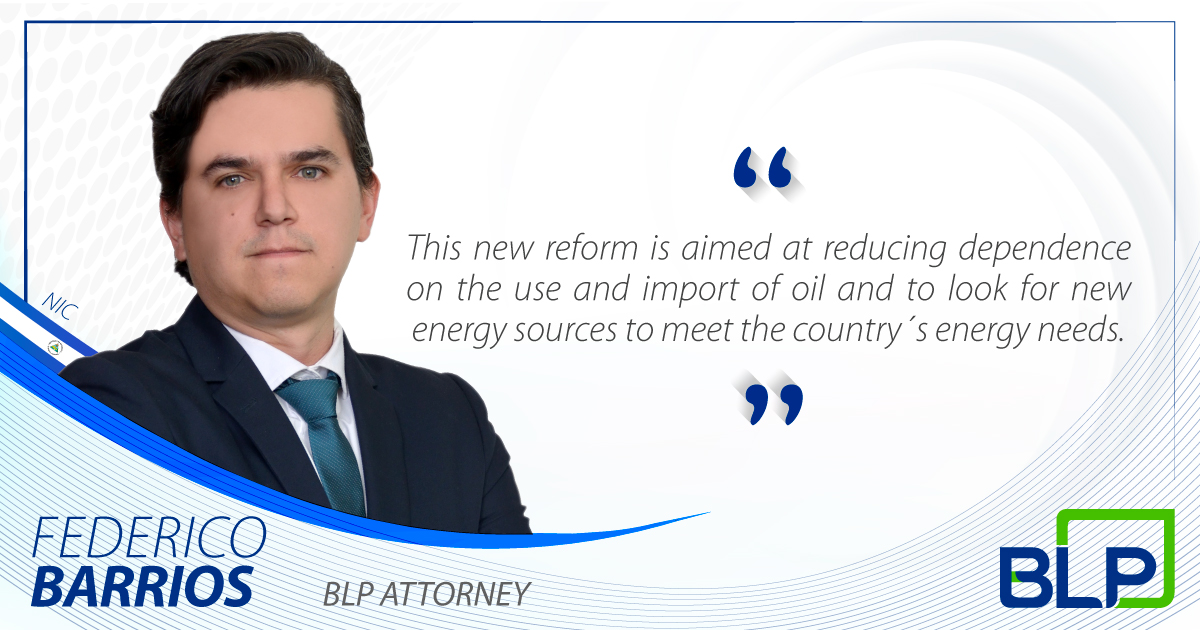Nicaragua’s Energy Industry was recently reformed by publication in the Official Gazette of Law 1,011 that amends Article 32 of Law 272, Law of the Electricity Industry.
The amendment creates an exemption from all taxes on an activity that meets the following conditions: Sale of Electric Power, made by a Distributed Generator, to the Distribution network, provided that said sale is covered by a contract of sale of energy with the Distribution Companies.
Textually, the reformed article now reads as follows:
Article 32: “Economic Agents dedicated to the Activity of Distribution may sign contracts for the sale of electricity with the Generator, Distributor Generator, and Large Consumer, and they may also buy on the open market as well as import electrical energy.
“The sale of the surplus Electric Power delivered by the Distributed Generator to the distribution network and which is committed through an energy purchase and sale agreement with the Distribution Companies shall be exempt from the application and/or withholding of all taxes, fees and special contributions since the distributed generator is not an economic agent.”
In context, it is important to clarify the concepts of “Distributed Generation” and “Distributed Generator,” describing the first as “the generation of electrical energy for self-consumption and connected to the distribution system” and the second as “owner of a Distributed Generation facility.” Both ideas are recent in our legislation since they were not incorporated as elements of the Electric Industry Law until the reform of 2017.
In general terms, Distributed Generation refers to the generation of electricity carried out by national private companies (mills, slaughterhouses, industry, etc.), based on renewable sources and which, although initially for self-consumption, manages to create a surplus which they, the Distributor Generators, can market in the national network through purchase and sale agreements with the Distribution Companies.
The exemption from taxes on the sale of energy from renewable sources is intended to place the Distributed Generators in a position of greater competitiveness versus traditional Generators, who in their specific regulations have always had various tax incentives.
This competitiveness should encourage various sectors of private enterprise to generate more energy from renewable sources. To some extent, it is possible that this policy is aimed at reducing dependence on the use and import of oil to meet the country’s energy needs.



